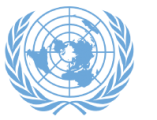The panel brought together high-level UN officials who provided opening remarks on the topic, including Jan Eliasson, Deputy Secretary General of the United Nations and Zainab Bangura, Special Representative of the Secretary General on Sexual Violence in Conflict. In addition, panelists includedFionnuala D. Ni Aolain, Dorsey and Whitney Chair in Law at the University of Minnesota Law School and Professor of Law, University of Ulster’s Transitional Justice Institute in Belfast, Northern Ireland; Ruben Carranza, Director, Reparative Justice Program, International Center for Transitional Justice; Ilwad Elman, Director of Programs and Development at the Elman Peace and Human Rights Centre; and, Mayesha Alam, Associate Director, Georgetown Institute for Women, Peace and Security.
Ambassador Nusseibeh emphasized the vital role that transitional justice plays in helping societies to redress the legacies of massive human rights abuses associated with a violent past. Transitional justice mechanisms "ensure accountability, serve justice, and achieve reconciliation and have become critical components of efforts to strengthen the rule of law and an integral element of the peacebuilding agenda." Ambassador Nusseibeh went on to highlight the challenges that women face when attempting to access the justice sector post-conflict. She noted, "These same barriers also make it difficult for women to participate in the formation and implementation of the rule of law, which is crucial to achieving a sustainable peace." Ambassador Nusseibeh also stressed that a transformative approach to transitional justice, from the UAE’s perspective, must take into account "an awareness of the norms that prevail in societies emerging from conflict. In each individual case, transitional justice mechanisms must be developed in a context-specific manner, according to the vast array of cultural perspectives. We believe that having an awareness of the local context is key to achieving justice for women and for developing the necessary mechanisms that address the crimes women suffer from when emerging from conflict." She indicated that the UAE is committed to upholding the principles of the rule of law and the inclusion of women in all fields, including the justice system.
Deputy Secretary General Jan Eliasson stressed that we all have to do more than strengthen the gender balance in transitional justice mechanisms, and the root inequalities that lead to these violations. "Respect for women’s rights promotes peace and sustainable development peace is inextricably linked to equality between men and women." The Secretary-General’s Special Representative for Sexual Violence in Conflict, Zainab Hawa Bangura, discussed the transformative impact of reparations. "As we have seen century after century, war after war, justice is not merely about punishing perpetrators, it is about empowering victims." The Special Representative then emphasized that "the symbolic power [of reparations] is to recognize that the victim is a holder of rights that will be enforced." All panelists echoed this sentiment.
Professor Fionnuala Ni Aolain spoke personally from her experiences in the Northern Ireland peace process. She stressed that "ensuring transformation requires engagement with economic empowerment for women." Her calls for the economic empowerment of women were echoed by the entire panel.
Mr. Ruben Carranza from the International Center for Transitional Justice spoke about the power of transitional justice "using truth commissions, reparations, institutional reform, and criminal justice measures to guide transformation even if they themselves may not lead to transformation." Ilwad Elman of the Elman Peace and Human Rights Centre spoke about her experience in Somalia. She stressed the importance of making women’s participation in transitional justice a priority, of "processes designed with them [women], not about them." In her concluding remarks, Mayesha Alam of the Georgetown Institute for Women, Peace and Security emphasized that "In order to truly be transformative, transitional justice initiatives need to be victim-centric," and should strengthen the rule of law. "At the same time, women have to be able to access transitional justice initiatives as more than just victims, as judges, prosecutors, investigators, expert witnesses, in order for their participation to be multidimensional." The panel discussion highlighted the importance of taking a transformative approach to transitional justice, in the hopes that the justice system can better address the full range of violations that women experience during conflict. Panelists emphasized that a transformative approach also entails promoting women’s access and active participation in the design and implementation of transitional justice mechanisms.
The series of Panels sponsored by the UAE will substantively contribute to the Global Study to review the progress and challenges of resolution 1325 on women, peace and security. Each panel will result in a summary, written in partnership with the Georgetown Institute for Women, Peace and Security, reflecting the discussions. These summaries will inform the Global Study, and will be available on UN Women’s web portal. The UAE has also contributed financially to the study.


